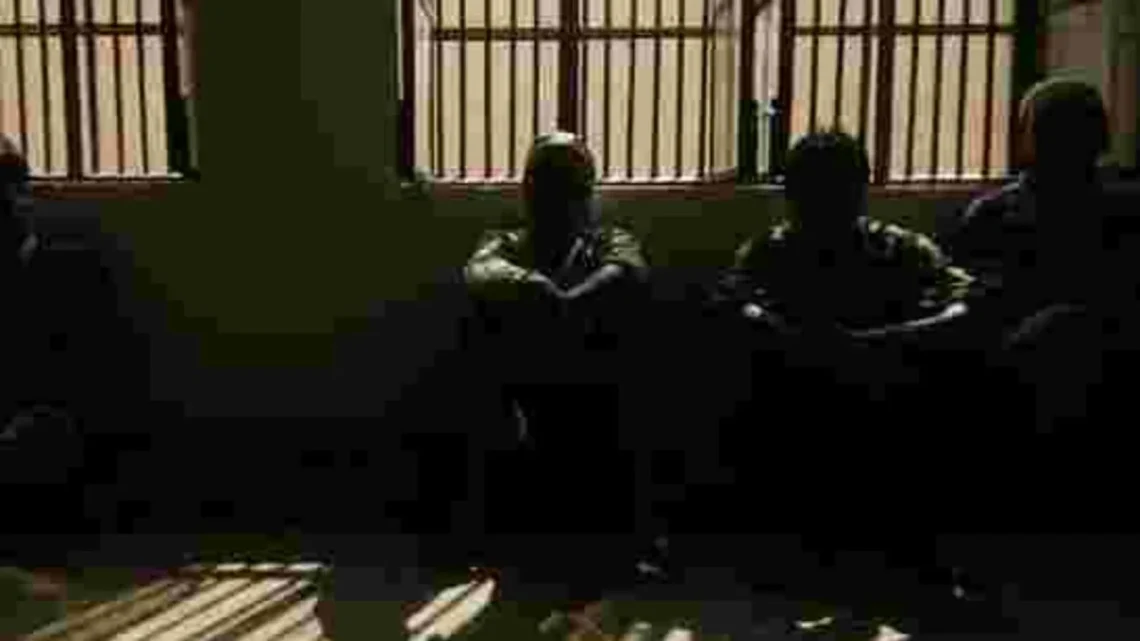
New Restrictions Intensify Hardships for Kashmiri Prisoners in Tihar Jail
July 26, 2024Kashmiri prisoners held in Delhi’s notorious Tihar Jail are enduring new hardships as the prison administration has imposed unwritten restrictions barring them from making their weekly phone calls to family members, according to a report by The Wire. This measure exacerbates the already harsh conditions faced by the prisoners during Delhi’s oppressive summer heat, with many falling ill due to the lack of cooling facilities.
The restriction, in place for over a week, was communicated verbally to the prisoners, leaving their families distressed and disconnected. For these prisoners, phone calls are often the only way to maintain contact with their families, who reside over 1,000 kilometers away in Kashmir. The long distance and financial constraints make in-person visits nearly impossible, particularly for families with young children.
Almost all of the Kashmiri prisoners in Tihar are facing trial in the National Investigation Agency (NIA) court in Delhi, largely for their political beliefs. Despite existing court orders guaranteeing their right to phone calls, the prisoners were told they would need to file a new application before the court to continue speaking with their families — a clear violation of their rights. One prominent case is that of Asiya Andrabi, chief of Dukhtaran-e-Millat, who has been held in Tihar since 2018. Her son, Ahmed, voiced his frustration over the arbitrary restriction, describing it as a deliberate attempt to harass his mother and other Kashmiri prisoners.
This latest development follows earlier reports of inadequate cooling facilities during Delhi’s extreme summer heat. Many prisoners reportedly fell ill, with some saying they were denied proper ventilation and provided with fans that only circulated hot air. Relatives believe that the restriction on phone calls may be a punitive measure in response to the prisoners speaking out about these harsh conditions. “This fresh diktat is seemingly because we have spoken and written about the awful circumstances that prisoners are experiencing,” said Musab, son of another Kashmiri prisoner, Nahida Nasreen.
Notably, APHC Chairman Masarrat Aalam Butt, Shabbir Ahmad Shah, Muhammad Yasin Malik, Fehmeeda Sufi, Nayeem Ahmad Khan, Ayaz Akbar, Pir Saifullah, Merajuddin Kalwal, Shahid-ul-Islam, Farooq Ahmed Dar, Syed Shahid Yousuf Shah, Syed Shakeel Yousuf Shah, Bashir Ahmad Pannu, human rights defender Khurram Parvaiz, journalist Irfan Mehraj, Mahmood Topi Wala, Khalid Mehboob Phalwan, Aamir Ahmed Gojri, and newly elected Indian MP Eng Rashid have been languishing in Tihar Jail for several years.
The prolonged incarceration of these Kashmiri prisoners, many of whom have been in jail for nearly a decade without trial, has taken a toll on both the prisoners and their families. As these families continue to seek justice and relief, the situation highlights broader concerns about human rights and justice for Kashmiri prisoners in India’s penal system.

